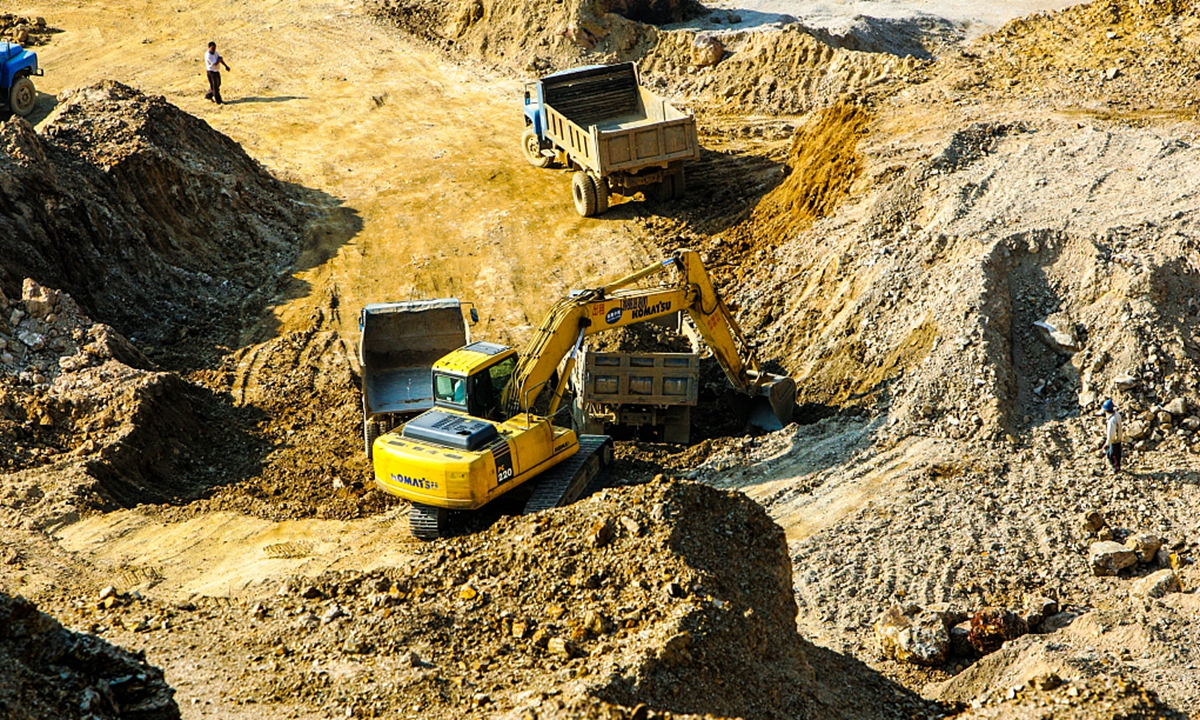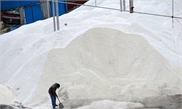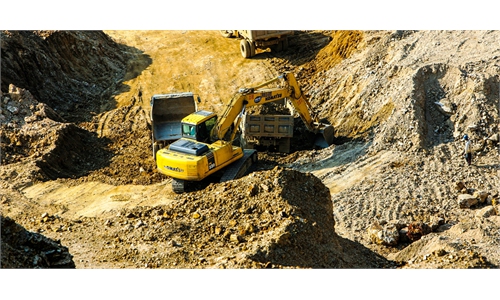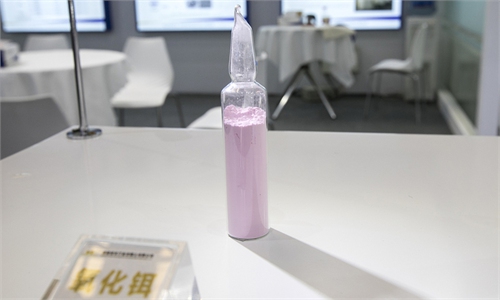
rare earth Photo:VCG
China's state asset administration has approved a major merger of rare-earth assets under various state-owned enterprises (SOEs) to form a new company, according to a filing from one of the SOEs involved, marking a significant step toward the country's efforts to optimize the management of the key resources.The forming of the rare-earth behemoth, said to be one of the world's largest, means that China may enforce stricter quotas on the production and exports of these strategic resources after years of unregulated exploitation, which will help ensure the sustainable development of the industry, analysts said.
According to a stock filing published by the China Minmetals Rare Earth Co on Wednesday, the company received notice from its parent company China Minmetals Corp that the State-owned Assets Supervision and Administration Commission (SASAC) has approved to set up a new company based on the strategic merger of assets from companies including China Minmetals Corp, the Aluminum Corporation of China as well as the government of Ganzhou.
The new company will be controlled by the SASAC, the country's state assets watchdog. Industry insiders estimate the new company will control around 70 percent of China's heavy rare-earth minerals, which is an indispensable material in manufacturing items from high-tech consumer electronics to military equipment.
Following widespread discussions on the merger, the plan began to take shape in early December, a manager of a state-owned rare-earth enterprise based in resource-rich Ganzhou, in East China's Jiangxi Province, told the Global Times on Wednesday, speaking on condition of anonymity.
Another Ganzhou-based industry insider also confirmed with the Global Times on Wednesday that the merger is "not a secret within the industry and personnel are already in place."
"After forming the new company, China's rare-earth industry will shift from a scattered, small-scale status toward a systematic, comprehensive model," Chen Zhanheng, deputy head of the China Rare Earth Industry Association, told the Global Times.
The anonymous manager said that the move aims to consolidate China's world-leading competitiveness across the rare-earth upstream and downstream sectors.
"We expect the new company will optimize resources, ensure supply security and enforce stricter rules relating to production quantity as well as the export volume of rare earths," the manager said.
China provides more than 85 percent of the world's rare earths and is home to about two-thirds of the global supply of scarce metals and minerals, according to a report by the US think tank the Center for Strategic and International Studies.
Wide implications
The merger comes after the Biden administration in recent months hyped the "risks of China's threat to US supply chain" outlining gearing up rare-earth supply as one of their prioritized climate and technological policies.
According to media reports, the US Defense Department has signed a technological investment agreement with an Australian company, under which the latter will build a light rare-earth processing facility in Texas.
Wu Chenhui, an independent industrial analyst, told the Global Times on Wednesday that the new entity will not change its primary target of China ensuring the global rare-earth supplies and the country will not weaponize it as a diplomatic counterattack unless it is forced to.
"But these critical resources do give China greater clout and bargaining power at the negotiation table, serving as a stern warning to any Western bullying attempts," Wu added.
China's rare-earth capacity has been in the spotlight during the 18-month trade war between the world's two largest economies.
In 2019, Chinese President Xi Jinping visited Ganzhou, a major production base for rare-earth minerals and magnets, further shedding light on China's prowess in the rare-earth industry from extraction, refining and production to making downstream applications.
Industry insiders expect the restructure may drive up rare-earth prices and domestic firms' profitability as well, helping overhaul persisting industry issues such as environmental pollution and inefficient use of valuable resources due to enterprises' vicious price competition.
Rare-earth prices have spiked since the beginning of 2020, when the COVID-19 pandemic broke out which led to a global supply shortage and a drastic reduction in productivity.
But the prices have not yet returned to the levels they reached in mid-2011, according to a Wall Street Journal report.



